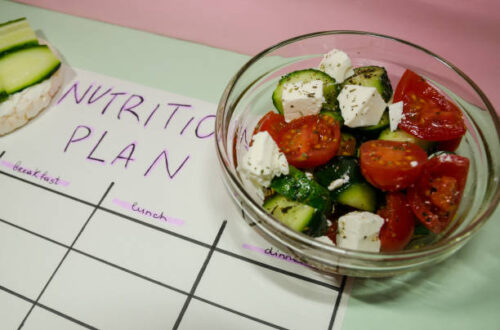You know that feeling, right? It’s late at night, your textbook is open, and your brain is feeling… fried. The easy answer is to grab a bag of chips or order a greasy pizza. It feels good for a minute, but an hour later, you’re hit with a “food coma” that makes studying even harder. Student life is a marathon, not a sprint, and what you eat can be the difference between getting an “A” and just getting by.
A healthy diet for a student isn’t about expensive superfoods or complicated recipes. It’s about smart choices that give you the energy to power through lectures, the focus to ace exams, and the nutrients to keep your mind sharp. This guide breaks down the top 10 foods every student should add to their diet plan. These foods are not only great for your brain and body, but they are also affordable, easy to find, and simple to prepare, even in a dorm room.
The Student Diet Challenge: Why It Matters
Contents
- 1 The Student Diet Challenge: Why It Matters
- 2 The Top 10 Brain-Boosting, Budget-Friendly Foods
- 2.1 1. Oats: The Long-Lasting Energy Source
- 2.2 2. Eggs: The Perfect Brain Food
- 2.3 3. Berries: Antioxidants for Brain Health
- 2.4 4. Greek Yogurt: Protein and Gut Health
- 2.5 5. Nuts and Seeds: Healthy Fats for Your Brain
- 2.6 6. Leafy Greens: Vitamins and Minerals
- 2.7 7. Salmon (or Canned Tuna): Omega-3 Power
- 2.8 8. Beans and Lentils: Fiber and Protein
- 2.9 9. Bananas: Quick and Easy Energy
- 2.10 10. Sweet Potatoes: A Nutrient-Packed Carb
- 3 Putting It All Together: A Simple Student Diet Plan
- 4 Frequently Asked Questions
- 5 Final Thoughts
Let’s be real: student life can be tough on a diet. You’re busy, you’re on a budget, and you’re surrounded by cheap, unhealthy options. But skipping meals or relying on junk food can have serious consequences.
- Brain Power: Your brain uses a lot of energy. It needs a steady supply of good nutrients to stay focused, remember information, and solve problems. When you eat junk food, your blood sugar spikes and then crashes, leading to a “brain fog” that makes studying impossible.
- Energy Levels: A good diet gives you long-lasting energy. Foods with fiber and healthy fats keep you full and energized for hours, helping you avoid that mid-afternoon slump.
- Stress and Mood: What you eat can directly affect your mood. Nutrient-rich foods can boost your mood, cut stress, and improve sleep. These benefits are key for academic success.
By making a few simple changes, you can transform your energy, your focus, and your semester.
The Top 10 Brain-Boosting, Budget-Friendly Foods
Here are the ten superstars of the student kitchen. Each one is a great choice on its own, but together, they form a powerful team for a healthy and successful semester.
1. Oats: The Long-Lasting Energy Source
Think of oats as the slow-release fuel for your brain. They are a type of whole grain packed with fiber. This fiber helps your body digest the food slowly, which means you get a steady, even release of energy instead of a quick spike and crash.
- Why it’s a Top Choice: Oats provide sustained energy for long study sessions and morning classes. They also contain important B vitamins that help your brain function at its best.
- Why it’s Student-Friendly: Oats are incredibly cheap and can be bought in large containers. They are easy to make in a microwave or even overnight with just water or milk.
- Easy Meal Ideas:
- Oatmeal: Just add hot water or milk. Top with bananas and a sprinkle of cinnamon for flavor.
- Overnight Oats: Mix oats, milk, and a spoonful of Greek yogurt in a jar. Put it in the fridge before bed, and you’ll have a ready-to-eat breakfast in the morning.
2. Eggs: The Perfect Brain Food
Eggs are a complete nutritional package. They contain high-quality protein, which keeps you full and focused, and they are packed with a nutrient called choline. Choline is a key player in memory and brain development.
- Why it’s a Top Choice: Eggs are one of the most protein-rich foods you can buy, which helps you feel full and focused for hours. Choline is directly linked to better memory and concentration.
- Why it’s Student-Friendly: Eggs are cheap, easy to find everywhere, and can be cooked in minutes with very little equipment. You can boil them, scramble them, or fry them.
- Easy Meal Ideas:
- Scrambled Eggs: Two eggs scrambled in a microwave-safe bowl with a splash of milk take less than two minutes.
- Hard-Boiled Eggs: Boil a batch of eggs at the beginning of the week for a quick grab-and-go snack or a topping for a salad.
3. Berries: Antioxidants for Brain Health
Strawberries, blueberries, raspberries—any kind of berry is a fantastic choice. These small fruits are loaded with antioxidants, which are like tiny bodyguards that protect your mental health from damage.
- Why it’s a Top Choice: Antioxidants are known to improve memory and can help protect against age-related decline. Berries also contain natural sugars that give you a quick, healthy energy boost.
- Why it’s Student-Friendly: Frozen berries are just as healthy as fresh ones and are much cheaper. They last a long time in the freezer, so you don’t have to worry about them going bad.
- Easy Meal Ideas:
- Smoothie: Blend a handful of frozen berries with a banana, a scoop of Greek yogurt, and a splash of milk.
- Oatmeal Topping: Stir frozen berries into hot oatmeal. They will thaw quickly and add a burst of flavor.
4. Greek Yogurt: Protein and Gut Health
Greek yogurt is different from regular yogurt because it has a lot more protein. It also contains probiotics, which are healthy bacteria that are great for your digestive system. A healthy gut is now known to be connected to a healthy mind.
- Why it’s a Top Choice: The high protein content keeps you feeling full and provides a steady flow of energy. Probiotics can help improve your mood and reduce stress.
- Why it’s Student-Friendly: It’s cheap, needs no cooking, and works great for snacks and breakfasts.
- Easy Meal Ideas:
- Yogurt Bowl: Mix Greek yogurt with a scoop of nuts, a handful of berries, and a drizzle of honey.
- Dip: Use plain Greek yogurt as a healthy snacks, creamy base for a vegetable dip.
5. Nuts and Seeds: Healthy Fats for Your Brain
Don’t be afraid of the fats in nuts and seeds—they’re the good kind! Nuts like walnuts, almonds, and peanuts are full of healthy fats, including Omega-3s, which are essential for a strong and healthy brain.
- Why it’s a Top Choice: The fats in nuts help improve memory and focus. They also provide fiber and protein, making them a filling and perfect snack to keep at your desk during a study session.
- Why it’s Student-Friendly: A small bag of nuts or seeds can be bought cheaply and lasts a long time. They don’t need to be refrigerated and are the ultimate grab-and-go snack.
- Easy Meal Ideas:
- Trail Mix: Create a simple trail mix with nuts, seeds, and some dried fruit.
- Nut Butter: Put peanut butter or almond butter on whole-grain toast or a banana for a quick, filling meal.
6. Leafy Greens: Vitamins and Minerals
It might not sound as exciting as berries, but greens like spinach and broccoli are true superheroes. They are packed with vitamins (like Vitamin K and C) and minerals that are crucial for brain function.
- Why it’s a Top Choice: These foods can help slow down age-related mental decline and are full of nutrients that fight fatigue. They are also packed with fiber to help your digestive system.
- Why it’s Student-Friendly: Fresh greens can be cheap, and frozen spinach or broccoli is even more affordable and won’t spoil. They can be added to almost any meal without much effort.
- Easy Meal Ideas:
- Microwave Side: Put frozen broccoli in a bowl with a little water, cover it, and microwave for a few minutes for a healthy side dish.
- Spinach Scramble: Add a handful of spinach to your scrambled eggs for a powerful nutrient boost.
7. Salmon (or Canned Tuna): Omega-3 Power
You’ve probably heard that fish is “brain food,” and it’s true! Fish like salmon and sardines are full of Omega-3 fatty acids, which are key for building and repairing brain cells.
- Why it’s a Top Choice: Omega-3s are directly linked to improved memory, better mood, and a lower risk of depression. They are one of the most important nutrients for a healthy brain.
- Why it’s Student-Friendly: While fresh salmon can be expensive, canned tuna or sardines are very cheap and have just as many Omega-3s. They don’t need to be refrigerated until opened and are perfect for a quick meal.
- Easy Meal Ideas:
- Tuna Sandwich: Mix canned tuna with a little mayonnaise or Greek yogurt and put it on whole-grain bread.
- On Crackers: A can of sardines on whole-grain crackers is a quick and nutrient-dense snack.
8. Beans and Lentils: Fiber and Protein
Beans and lentils are a perfect source of plant-based protein and fiber. They are also a good source of iron, which helps carry oxygen to your brain.
- Why it’s a Top Choice: Their high fiber content gives you a feeling of fullness that lasts for hours, helping you avoid snacking on unhealthy foods. The protein and iron are vital for keeping your energy levels stable.
- Why it’s Student-Friendly: Beans and lentils are one of the cheapest foods you can buy. A bag of dried lentils or a can of beans costs almost nothing and can be used in many different meals.
- Easy Meal Ideas:
- Lentil Soup: Cook dried lentils with a little water and some spices for a warm, filling meal.
- Taco Bowl: Add canned black beans to a bowl with rice, salsa, and cheese for a simple taco bowl.
9. Bananas: Quick and Easy Energy
Bananas are the ultimate grab-and-go energy source. They are rich in carbohydrates, which provide a quick energy boost. Also, they offer potassium, vital for nerve and muscle function.
- Why it’s a Top Choice: Bananas are easy to eat anywhere and provide the fast energy you need before a class or a workout.
- Why it’s Student-Friendly: They are very cheap and don’t require any preparation. They come in their own natural packaging, so you can just throw one in your backpack.
- Easy Meal Ideas:
- On the Go: Just peel and eat!
- Banana Slices: Add sliced bananas to a bowl of oatmeal or a smoothie for natural sweetness.
10. Sweet Potatoes: A Nutrient-Packed Carb
Sweet potatoes are a much better choice than regular fries or chips. They are a complex carbohydrate, meaning they provide a steady supply of energy, and they are loaded with Vitamin A.
- Why it’s a Top Choice: The complex carbs give you sustained energy without the sugar crash. Vitamin A is important for eye health, which is crucial for students who spend hours looking at a computer screen.
- Why it’s Student-Friendly: They are cheap, easy to store, and can be cooked in a microwave in just a few minutes.
- Easy Meal Ideas:
- Baked Sweet Potato: Just poke it with a fork a few times and microwave until soft. Top with a little salt and pepper.
- Sweet Potato Hash: Dice a microwaved sweet potato and mix it with scrambled eggs for a filling and delicious breakfast.
Putting It All Together: A Simple Student Diet Plan
Now that you have your list of superstar foods, how do you make them a part of your daily life? It’s easier than you think. You don’t need to be a chef or spend hours cooking. Here’s what a simple day might look like using our top 10 foods:
- Breakfast: A bowl of oatmeal topped with a handful of frozen berries and a sliced banana.
- Lunch: A tuna sandwich on whole-grain bread with a side of baby spinach.
- Afternoon Snack: A handful of almonds and an apple.
- Dinner: A simple black bean and rice bowl with a side of steamed broccoli.
This plan gives you a ton of nutrients, provides all-day energy, and can be put together in minutes.
Frequently Asked Questions
Q1: Are these foods expensive for a student budget?
The great thing about this list is that most of these foods are very affordable. Items like oats, eggs, lentils, and bananas are some of the cheapest foods you can buy. Buying frozen or canned versions of foods like berries and fish can also save you a lot of money.
Q2: What if I don’t have a kitchen to cook?
Many of these foods require very little cooking. Eggs can be microwaved, oats can be made with hot water, and items like nuts, yogurt, and bananas don’t need any cooking at all. You can also buy a small electric kettle or a microwave for your dorm room to make many of these meals.
Q3: How can I stop eating junk food?
The best way to stop eating junk food is to not have it around. Stock your room with healthy snacks like nuts, fruit, and yogurt so that when you get hungry, a good option is the easiest one to grab. Also, make sure you’re eating regularly so you don’t get so hungry that you reach for the first thing you see.
Q4: Is a diet plan really necessary?
You don’t need a strict, complicated diet plan. But having a simple plan to include these healthy foods in your week will make a huge difference. Think of it less as a “diet” and more as a strategy to give your body and mind the best chance to succeed.
Q5: What about drinks? Should I be drinking something specific?
The best drink is always water. Staying hydrated is crucial for brain function and energy. Avoid sugary drinks and energy drinks that can lead to a crash. A cup of coffee is fine, but make sure to balance it with plenty of water.
Final Thoughts
Being a successful student is about more than just intelligence and hard work—it’s about having the right fuel. Your body and mind are your most important tools for learning, and they need to be treated with care. By adding these 10 simple and affordable foods to your diet, you are making a powerful investment in yourself. You’re not just eating for energy; you’re eating for a better GPA, a sharper mind, and a healthier, happier you. So, next time you’re heading to the grocery store, skip the junk food aisle and grab these brain-boosting heroes instead. Your future self will thank you.





